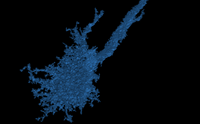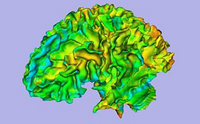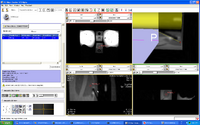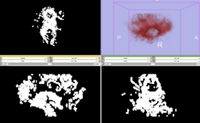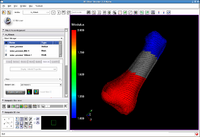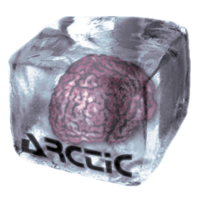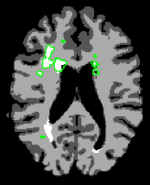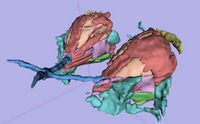Difference between revisions of "Slicer3.4:Training"
From Slicer Wiki
| Line 5: | Line 5: | ||
{| border="1" cellpadding="5" | {| border="1" cellpadding="5" | ||
| − | |- style="background:#FFD700; color: | + | |- style="background:#FFD700; color:#4A2A0A; font-size:130%" align="center" |
| style="width:5%" ;align="Center"| '''Category''' | | style="width:5%" ;align="Center"| '''Category''' | ||
| style="width:35%" ;align="Center"| '''Tutorial''' | | style="width:35%" ;align="Center"| '''Tutorial''' | ||
| Line 11: | Line 11: | ||
| style="width:10%" ;align="Center"| | | style="width:10%" ;align="Center"| | ||
|- | |- | ||
| − | | style="background:#FFD700; color: | + | | style="background:#FFD700; color:#4A2A0A; font-size:110%" align="Center"|<span id="1.1"></span> '''Basic''' |
| style="background:#FDFC6D; color:black" | '''[[Media:Slicer3Minute_SPujol.pdf | Slicer3Minute Tutorial]]''' <br><br> The Slicer3Minute tutorial is an introduction to the advanced 3D visualization capabilities of Slicer3.4.<br> <br>'''Audience''': First time users. | | style="background:#FDFC6D; color:black" | '''[[Media:Slicer3Minute_SPujol.pdf | Slicer3Minute Tutorial]]''' <br><br> The Slicer3Minute tutorial is an introduction to the advanced 3D visualization capabilities of Slicer3.4.<br> <br>'''Audience''': First time users. | ||
| style="background:#FDFC6D; color:black"| [[Media:Slicer3MinuteDataset.zip | '''Slicer3Minute dataset''' ]]<br><br> The Slicer3Minute dataset contains an MR scan of the brain and 3D reconstructions of the anatomy | | style="background:#FDFC6D; color:black"| [[Media:Slicer3MinuteDataset.zip | '''Slicer3Minute dataset''' ]]<br><br> The Slicer3Minute dataset contains an MR scan of the brain and 3D reconstructions of the anatomy | ||
| style="background:#FDFC6D; color:black" align="Center"| [[Image:Slicer3Minute.PNG|200px]] | | style="background:#FDFC6D; color:black" align="Center"| [[Image:Slicer3Minute.PNG|200px]] | ||
|- | |- | ||
| − | | style="background:#FFD700; color: | + | | style="background:#FFD700; color:#4A2A0A; font-size:110%" align="Center"|<span id="1.2"></span> '''Core''' |
| style="background:#FDFC6D; color:black"|[[Media:Slicer3Course_DataLoading_3DVisualization_SoniaPujol.pdf | '''Slicer3Visualization Tutorial ''']] <br><br> The Slicer3Visualization tutorial guides through 3D data loading and visualization in Slicer3.4.<br> <br> '''Audience''': All beginning users including clinicians, scientists, engineers and programmers. | | style="background:#FDFC6D; color:black"|[[Media:Slicer3Course_DataLoading_3DVisualization_SoniaPujol.pdf | '''Slicer3Visualization Tutorial ''']] <br><br> The Slicer3Visualization tutorial guides through 3D data loading and visualization in Slicer3.4.<br> <br> '''Audience''': All beginning users including clinicians, scientists, engineers and programmers. | ||
| style="background:#FDFC6D; color:black" | [[Media:Slicer3VisualizationDataset.zip | '''Slicer3Visualization dataset''' ]] <br><br> The Slicer3VisualizationDataset contains two MR scans of the brain, a pre-computed labelmap and 3D reconstructions of the anatomy. | | style="background:#FDFC6D; color:black" | [[Media:Slicer3VisualizationDataset.zip | '''Slicer3Visualization dataset''' ]] <br><br> The Slicer3VisualizationDataset contains two MR scans of the brain, a pre-computed labelmap and 3D reconstructions of the anatomy. | ||
| style="background:#FDFC6D; color:black" align="Center"| [[Image:DataLoadingAndVisualization_SPujol.png|200px]] | | style="background:#FDFC6D; color:black" align="Center"| [[Image:DataLoadingAndVisualization_SPujol.png|200px]] | ||
|- | |- | ||
| − | | style="background:#FFD700; color: | + | | style="background:#FFD700; color:#4A2A0A; font-size:110%" align="Center"| <span id="1.1"></span> '''Core''' |
| style="background:#FDFC6D; color:black" | '''[[Media:ProgrammingIntoSlicer3_SoniaPujol.pdf | Programming in Slicer3 Tutorial ]]''' <br><br> The Programming in Slicer3 tutorial is an introduction to the the integration of stand-alone programs outside of the Slicer3 source tree.<br> <br>'''Audience''': Programmers and Engineers. | | style="background:#FDFC6D; color:black" | '''[[Media:ProgrammingIntoSlicer3_SoniaPujol.pdf | Programming in Slicer3 Tutorial ]]''' <br><br> The Programming in Slicer3 tutorial is an introduction to the the integration of stand-alone programs outside of the Slicer3 source tree.<br> <br>'''Audience''': Programmers and Engineers. | ||
| style="background:#FDFC6D; color:black" | [[Media:HelloWorld_Plugin.zip| '''HelloWorld Plugin ''']]<br><br> The HelloWorld tutorial dataset contains an MR scan of the brain and pre-computed xml and C++ files for integrating the Hello World plug-in to Slicer3. | | style="background:#FDFC6D; color:black" | [[Media:HelloWorld_Plugin.zip| '''HelloWorld Plugin ''']]<br><br> The HelloWorld tutorial dataset contains an MR scan of the brain and pre-computed xml and C++ files for integrating the Hello World plug-in to Slicer3. | ||
| style="background:#FDFC6D; color:black" align="Center"| [[Image:ProgrammingCourse_Logo.PNG|200px|Programming]] | | style="background:#FDFC6D; color:black" align="Center"| [[Image:ProgrammingCourse_Logo.PNG|200px|Programming]] | ||
|- | |- | ||
| − | | style="background:#FFD700; color: | + | | style="background:#FFD700; color:#4A2A0A; font-size:110%" align="Center"| <span id="1.1"></span> '''Specialized''' |
| style="background:#FDFC6D; color:black" | '''[[Media:FreeSurferCourse_Slicer3-4_SoniaPujol.pdf | 3D Visualization of FreeSurfer Data ]]''' <br><br> The course guides through 3D visualization of FreeSurfer brain segmentations, surface reconstruction and parcellation results in Slicer3.4.<br> <br>'''Audience''': All users. | | style="background:#FDFC6D; color:black" | '''[[Media:FreeSurferCourse_Slicer3-4_SoniaPujol.pdf | 3D Visualization of FreeSurfer Data ]]''' <br><br> The course guides through 3D visualization of FreeSurfer brain segmentations, surface reconstruction and parcellation results in Slicer3.4.<br> <br>'''Audience''': All users. | ||
| style="background:#FDFC6D; color:black" | [http://www.na-mic.org/Wiki/index.php/File:FreeSurferTutorialData.zip '''FreeSurfer Tutorial dataset ''']<br><br> The FreeSurfer dataset contains an MR scan of the brain and pre-computed FreeSurfer segmentation and cortical surface reconstructions. | | style="background:#FDFC6D; color:black" | [http://www.na-mic.org/Wiki/index.php/File:FreeSurferTutorialData.zip '''FreeSurfer Tutorial dataset ''']<br><br> The FreeSurfer dataset contains an MR scan of the brain and pre-computed FreeSurfer segmentation and cortical surface reconstructions. | ||
| style="background:#FDFC6D; color:black" align="Center"| [[Image:FreeSurferTutorial.PNG|200px]] | | style="background:#FDFC6D; color:black" align="Center"| [[Image:FreeSurferTutorial.PNG|200px]] | ||
|- | |- | ||
| − | | style="background:#FFD700; color: | + | | style="background:#FFD700; color:#4A2A0A; font-size:110%" align="Center"| <span id="1.1"></span> '''Specialized''' |
| style="background:#FDFC6D; color:black" | '''[[Media:AutomaticSegmentation_SoniaPujol.pdf | Automatic Segmentation Tutorial ]]''' <br><br> The course guides through the process of using the Expectation-Maximization Segmentation algorithm to automatically segment brain structures from MRI data.<br> <br>'''Audience''': Programmers and Engineers. | | style="background:#FDFC6D; color:black" | '''[[Media:AutomaticSegmentation_SoniaPujol.pdf | Automatic Segmentation Tutorial ]]''' <br><br> The course guides through the process of using the Expectation-Maximization Segmentation algorithm to automatically segment brain structures from MRI data.<br> <br>'''Audience''': Programmers and Engineers. | ||
| style="background:#FDFC6D; color:black" | [[Media:AutomaticSegmentation.zip| '''Automatic Segmentation dataset ''']] | | style="background:#FDFC6D; color:black" | [[Media:AutomaticSegmentation.zip| '''Automatic Segmentation dataset ''']] | ||
| style="background:#FDFC6D; color:black" align="Center"| [[Image:EMSegmentationTutorial.PNG|200px]] | | style="background:#FDFC6D; color:black" align="Center"| [[Image:EMSegmentationTutorial.PNG|200px]] | ||
|- | |- | ||
| − | | style="background:#FFD700; color: | + | | style="background:#FFD700; color:#4A2A0A; font-size:110%" align="Center"| <span id="1.1"></span> '''Specialized''' |
| style="background:#FDFC6D; color:black" | '''[http://wiki.na-mic.org/Wiki/index.php/IGT:ToolKit/Neurosurgical-Planning Neurosurgical Planning Tutorial ]''' <br><br> This tutorial takes the trainee through a complete workup for neurosurgical patient-specific mapping. Also see this tutorial for information on how to use Slicer's affine registration, simple region growing, model maker and tractography modules.<br> <br>'''Audience''': All users interested in image-guided therapy. | | style="background:#FDFC6D; color:black" | '''[http://wiki.na-mic.org/Wiki/index.php/IGT:ToolKit/Neurosurgical-Planning Neurosurgical Planning Tutorial ]''' <br><br> This tutorial takes the trainee through a complete workup for neurosurgical patient-specific mapping. Also see this tutorial for information on how to use Slicer's affine registration, simple region growing, model maker and tractography modules.<br> <br>'''Audience''': All users interested in image-guided therapy. | ||
| style="background:#FDFC6D; color:black" | [[Media:NeurosurgicalPlanningTutorialData.zip| '''Neurosurgical Planning dataset ''']] | | style="background:#FDFC6D; color:black" | [[Media:NeurosurgicalPlanningTutorialData.zip| '''Neurosurgical Planning dataset ''']] | ||
| style="background:#FDFC6D; color:black" align="Center"| [[Image:NeurosurgicalPlanningOverview.png|200px]] | | style="background:#FDFC6D; color:black" align="Center"| [[Image:NeurosurgicalPlanningOverview.png|200px]] | ||
|- | |- | ||
| − | | style="background:#FFD700; color: | + | | style="background:#FFD700; color:#4A2A0A; font-size:110%" align="Center"| <span id="1.1"></span> '''Specialized''' |
| style="background:#FDFC6D; color:black" | '''[http://www.na-mic.org/Wiki/images/1/1a/DiffusionMRITutorial_SFN2009_SoniaPujol.pdf Diffusion MRI Tutorial]''' <br><br> This tutorial guides you through the process of loading diffusion MR data, estimating diffusion tensors, and performing tractography of white matter bundles. | | style="background:#FDFC6D; color:black" | '''[http://www.na-mic.org/Wiki/images/1/1a/DiffusionMRITutorial_SFN2009_SoniaPujol.pdf Diffusion MRI Tutorial]''' <br><br> This tutorial guides you through the process of loading diffusion MR data, estimating diffusion tensors, and performing tractography of white matter bundles. | ||
'''Audience''': All users and developers. | '''Audience''': All users and developers. | ||
| Line 47: | Line 47: | ||
| style="background:#FDFC6D; color:black" align="Center"| [[Image:cc.PNG |200px]] | | style="background:#FDFC6D; color:black" align="Center"| [[Image:cc.PNG |200px]] | ||
|- | |- | ||
| − | | style="background:#FFD700; color: | + | | style="background:#FFD700; color:#4A2A0A; font-size:110%" align="Center"| <span id="1.1"></span> '''Specialized''' |
| style="background:#FDFC6D; color:black" | '''[[Media:Slicer3.4.1-ChangeTrackerTutorial.pdf | ChangeTracker Tutorial]]''' <br><br> This tutorial describes the use of ChangeTracker module to detect changes in tumor volume from two MRI scans. | | style="background:#FDFC6D; color:black" | '''[[Media:Slicer3.4.1-ChangeTrackerTutorial.pdf | ChangeTracker Tutorial]]''' <br><br> This tutorial describes the use of ChangeTracker module to detect changes in tumor volume from two MRI scans. | ||
'''Audience''': All users interested in longitudinal analysis of pathology. | '''Audience''': All users interested in longitudinal analysis of pathology. | ||
| Line 53: | Line 53: | ||
| style="background:#FDFC6D; color:black" align="Center"| [[Image:Slicer3.4.1-ChangeTracker.jpg |200px]] | | style="background:#FDFC6D; color:black" align="Center"| [[Image:Slicer3.4.1-ChangeTracker.jpg |200px]] | ||
|- | |- | ||
| − | | style="background:#FFD700; color: | + | | style="background:#FFD700; color:#4A2A0A; font-size:110%" align="Center"| <span id="1.1"></span> '''Specialized''' |
| style="background:#FDFC6D; color:black" | '''[[Media:3DVisualization_SoniaPujol_RSNA2008.ppt | LiverSegmentation Tutorial]]''' <br><br> This tutorial introduces translational clinical scientists to the capabilities of the 3D Slicer software through the segmentation of the liver. | | style="background:#FDFC6D; color:black" | '''[[Media:3DVisualization_SoniaPujol_RSNA2008.ppt | LiverSegmentation Tutorial]]''' <br><br> This tutorial introduces translational clinical scientists to the capabilities of the 3D Slicer software through the segmentation of the liver. | ||
'''Audience''': All users and developers. | '''Audience''': All users and developers. | ||
Revision as of 16:38, 12 November 2009
Home < Slicer3.4:TrainingContents
Slicer 3.4 Tutorials
- The following table contains "How to" tutorials with matched sample data sets. They demonstrate how to use the 3D Slicer environment ( version 3.4) to accomplish certain tasks.
| Category | Tutorial | Sample Data | |
| Basic | Slicer3Minute Tutorial The Slicer3Minute tutorial is an introduction to the advanced 3D visualization capabilities of Slicer3.4. Audience: First time users. |
Slicer3Minute dataset The Slicer3Minute dataset contains an MR scan of the brain and 3D reconstructions of the anatomy |
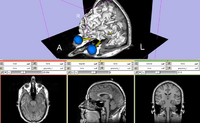
|
| Core | Slicer3Visualization Tutorial The Slicer3Visualization tutorial guides through 3D data loading and visualization in Slicer3.4. Audience: All beginning users including clinicians, scientists, engineers and programmers. |
Slicer3Visualization dataset The Slicer3VisualizationDataset contains two MR scans of the brain, a pre-computed labelmap and 3D reconstructions of the anatomy. |
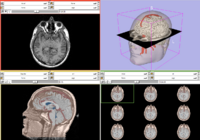
|
| Core | Programming in Slicer3 Tutorial The Programming in Slicer3 tutorial is an introduction to the the integration of stand-alone programs outside of the Slicer3 source tree. Audience: Programmers and Engineers. |
HelloWorld Plugin The HelloWorld tutorial dataset contains an MR scan of the brain and pre-computed xml and C++ files for integrating the Hello World plug-in to Slicer3. |
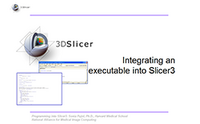
|
| Specialized | 3D Visualization of FreeSurfer Data The course guides through 3D visualization of FreeSurfer brain segmentations, surface reconstruction and parcellation results in Slicer3.4. Audience: All users. |
FreeSurfer Tutorial dataset The FreeSurfer dataset contains an MR scan of the brain and pre-computed FreeSurfer segmentation and cortical surface reconstructions. |
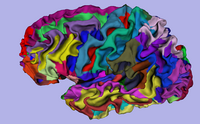
|
| Specialized | Automatic Segmentation Tutorial The course guides through the process of using the Expectation-Maximization Segmentation algorithm to automatically segment brain structures from MRI data. Audience: Programmers and Engineers. |
Automatic Segmentation dataset | 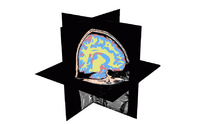
|
| Specialized | Neurosurgical Planning Tutorial This tutorial takes the trainee through a complete workup for neurosurgical patient-specific mapping. Also see this tutorial for information on how to use Slicer's affine registration, simple region growing, model maker and tractography modules. Audience: All users interested in image-guided therapy. |
Neurosurgical Planning dataset | 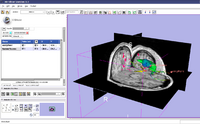
|
| Specialized | Diffusion MRI Tutorial This tutorial guides you through the process of loading diffusion MR data, estimating diffusion tensors, and performing tractography of white matter bundles. Audience: All users and developers. |
Diffusion dataset | 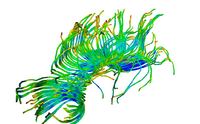
|
| Specialized | ChangeTracker Tutorial This tutorial describes the use of ChangeTracker module to detect changes in tumor volume from two MRI scans. Audience: All users interested in longitudinal analysis of pathology. |
Training data download is integrated with the ChangeTracker module (see tutorial slides) | |
| Specialized | LiverSegmentation Tutorial This tutorial introduces translational clinical scientists to the capabilities of the 3D Slicer software through the segmentation of the liver. Audience: All users and developers. |
Liver Segmentation dataset |
Slicer Tutorial Contest
(under construction)
The following tutorials were part of the Summer 2009 Slicer tutorial contest and Winter 2009 Slicer tutorial contest.
Software Installation
- The Slicer download page contains information on how to obtain a compiled version of Slicer for a variety of platforms and where to find the source code for Slicer 3.
Software Documentation
- For the Slicer 3.4 manual pages please click here. These pages are the reference manual for Slicer 3.4 and briefly explain the functionality found in panels and modules.
Older Tutorials
- Visit the Slicer 3.2 training page.
- Visit the Slicer 2 training page.
